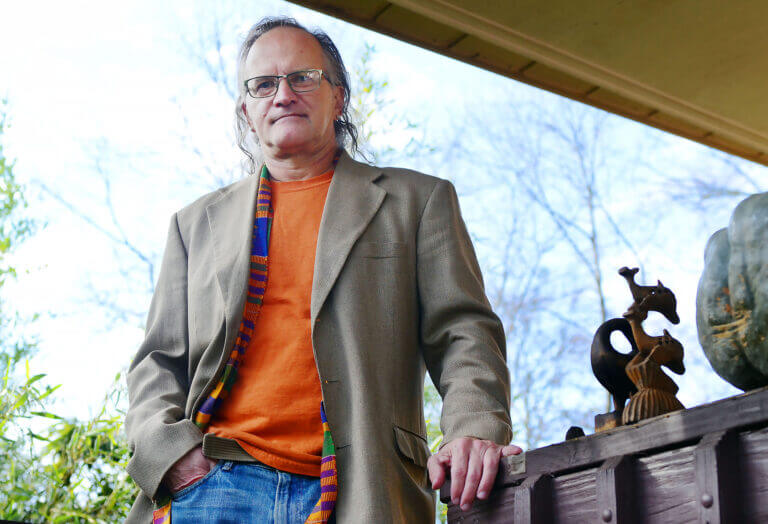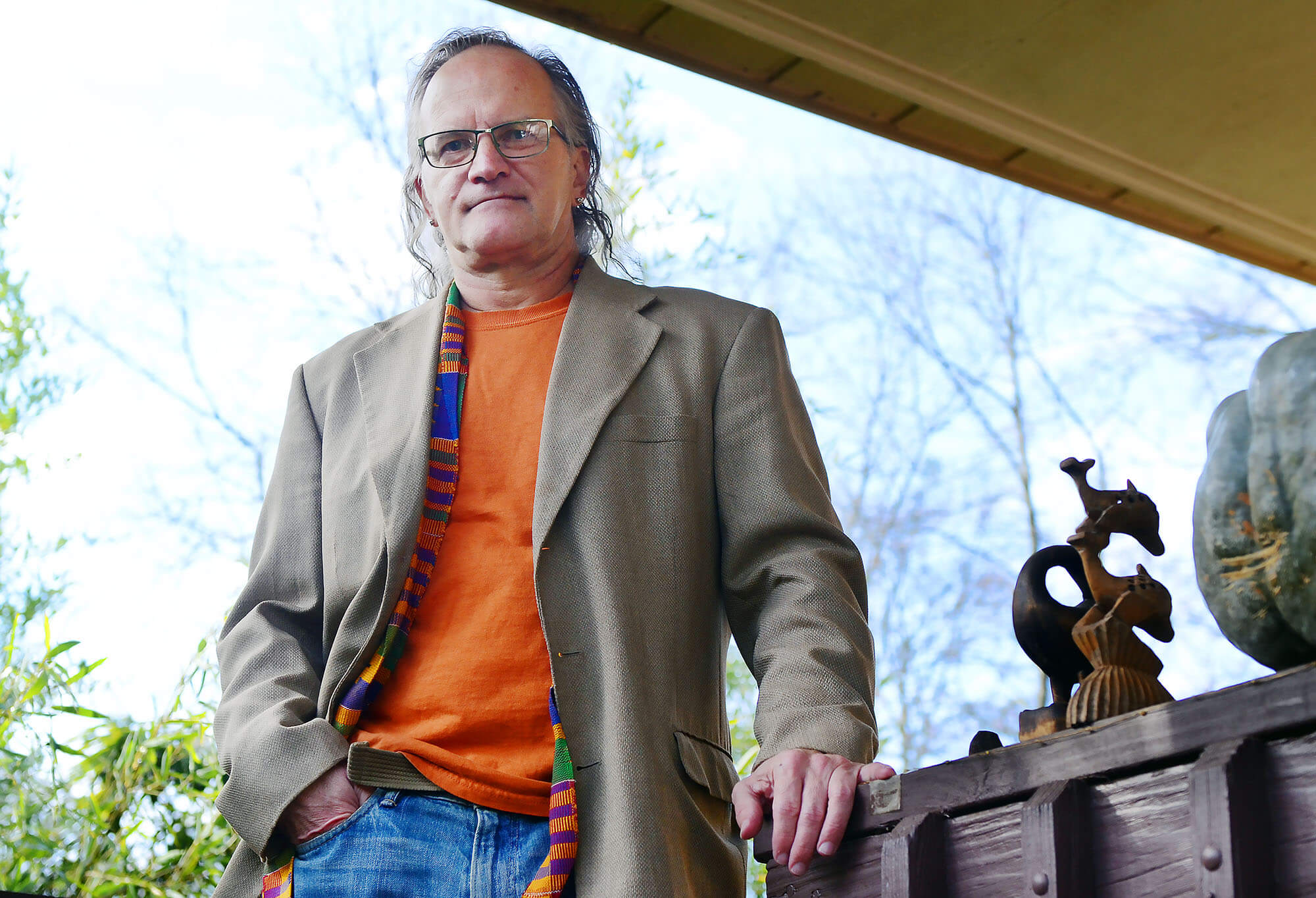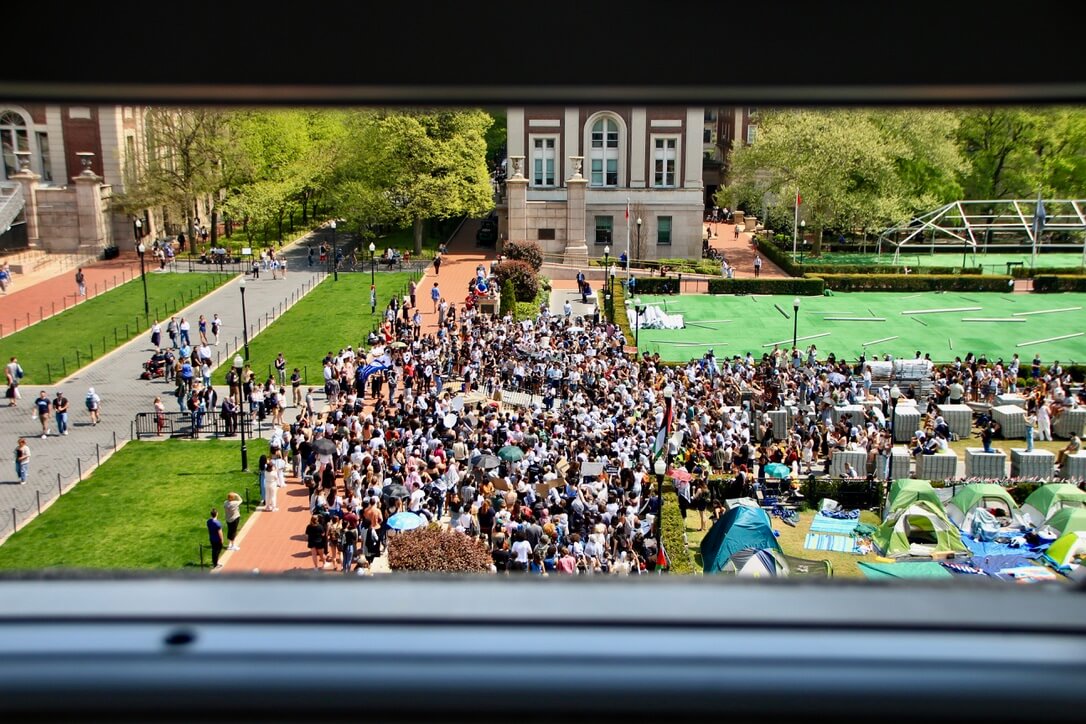


Amid a national maelstrom of attacks on academic freedom, the fate of James Bowley, the former chair and professor of Religious Studies at Millsaps College, hinges on a 10-word email he sent to his class of three students the morning after the presidential election. Nearly a month after a grievance committee repudiated his subsequent termination over those 10 words, his status remains in flux.
The day following his email, Bowley found out that he had been placed on paid administrative leave pending a review of his use of a Millsaps email account “to share personal opinions” with his students.
Around the days of the election, racist messages targeting African American students had been sent using the anonymous campus messaging platform Yik Yak. The FBI had informed the Millsaps community via email that it, along with law enforcement and the U.S. Department of Homeland Security, was investigating those messages.
“I personally would not send that kind of content to my class. But I understand the disappointment behind the email, understand the human sympathy, especially what happened with the Yik Yak post,” said David Wood, chair of the Modern Languages department at Millsaps College, referring to racist and threatening messages directed at African American students on the anonymous messaging platform Yik Yak, around the days of the 2024 presidential election.
“I knew the students were fearful. So I canceled my class,” Bowley said. “And I do not regret that for a second.” His 10-word email explained why the class was being cancelled: “to mourn and process this racist fascist country.”
Bowley filed a grievance against his leave of absence with the university’s grievance committee, which could not identify any specific policy that he had violated. It recommended in December that Bowley be reinstated immediately; that the Interim provost issue a formal apology to him, and that he be compensated for a loss of income that arose from his removal from a study abroad course he was supposed to have taught.
Weeks later, Bowley’s employment was terminated, by the interim provost — a decision he appealed. The interim provost at the time, Stephanie Rolph, was a candidate for the full-time position.
Now, nearly a month after the grievance committee decided to allow the terms of Bowley’s reinstatement be negotiated, his employment remains in flux as he waits for Millsaps’ president to affirm or overrule their decision.
The purpose of the college’s action “is to demonstrate the power of the administration over the faculty,” Bowley said. “I think the whole point is to make faculty self censor.”
The termination of Bowley comes amid a nationwide crackdown by universities and the Trump administration on speech by students and faculty. Since 2023, dozens of faculty members have been disciplined, or even fired. Since March, more than 1,500 international students have seen their visas revoked, with some even being detained without due process. And top universities have seen threats of funding freezes if they do not agree to laundry lists of demands and restrictions.
On Monday, Harvard University, which has vowed not to “surrender its independence or constitutional rights,” sued the Trump administration in an attempt to block them from freezing $2.2 billion in federal funding and an additional $1 billion in grants, which the administration in a letter had said it would do if the university did not overhaul its admissions and hiring policies, among others, allow for federal oversight of its operations, and commission external audits of a number of departments.
This letter, which the Trump administration now says was sent in error, came about a month after Columbia University capitulated to similar demands by the administration – in its case, which included empowering campus security to make arrests, suspending students involved in protests last spring, and placing its department of Middle Eastern, South Asian and African Studies under administrative receivership.
On Tuesday, the American Association of Colleges and Universities, which has more than 800 member institutions, issued a public statement, condemning “undue government intrusion in the lives of those who learn, live, and work on our campuses” and “coercive use of public research funding.”
Nearly 200 leaders of educational institutions signed the statement, including Millsaps College – the only Mississippi institution to do so. The president of Columbia University did not.

“Millsaps promises free speech to its faculty members and when it makes a promise like that it should stand by that promise and protect it,” said Haley Gluhanich, senior program counsel of FIRE, the Foundation for Individual Rights in Education. In Bowley’s case, she said, “We saw these violations of fundamental due process rights – the fact that he was put on administrative leave before he even had a hearing.”
Millsaps’ Faculty Handbook says a faculty member is “entitled to freedom in the classroom in discussing the subject matter of the course, but should be careful not to introduce controversial matter which has no relation to the subject.” It elaborates that “when speaking or writing as a citizen, the teacher is free from institutional censorship or discipline, but this special position in the community imposes special obligations,” because the public may interpret the words of a faculty member as being representative of the position of the institution.
However, in the grievance committee’s December recommendation, it found that the handbook “does not offer guidance on how to distinguish personnel matters from matters of academic freedom,” and that this lack of clarity appeared to expose tenured faculty members to a disciplinary process that was subject to the sole decision of any acting provost, with no recourse.
“When they are sharing a personal opinion, a criticism of an election,” said Gluhanich, “no reasonable person is going to assume that that is the speech of the college.”
“Millsaps truly shaped me. It broke down the conceptions that I had of the world and religion and philosophy and ideas. By doing so it forced me to build them back up,” said Elizabeth Land, an alumna of Millsaps College. “I was taught to think for myself. And that’s a gift that you can’t put a price tag on.”
Land circulated a petition last December calling for Bowley’s reinstatement – a decision that in April, has yet to be made.
Joey Lee, director of communications at Millsaps College said, on behalf of the office of the president, that they could not comment on ongoing personnel issues.
“If I win,” Bowley said, “It is a win for students and for faculty and for academic freedom.”
Michael Guidry is an alumnus of Millsaps College, having attended from 2001 to 2005
- Patients face canceled surgeries and delayed care amid UMMC cyberattack - February 20, 2026
- Goal is ‘better alignment, not bigger government’ for Mississippi tourism - February 20, 2026
- Challenging work hours, transportation, and child care continue to be workforce barriers in the Delta - February 20, 2026